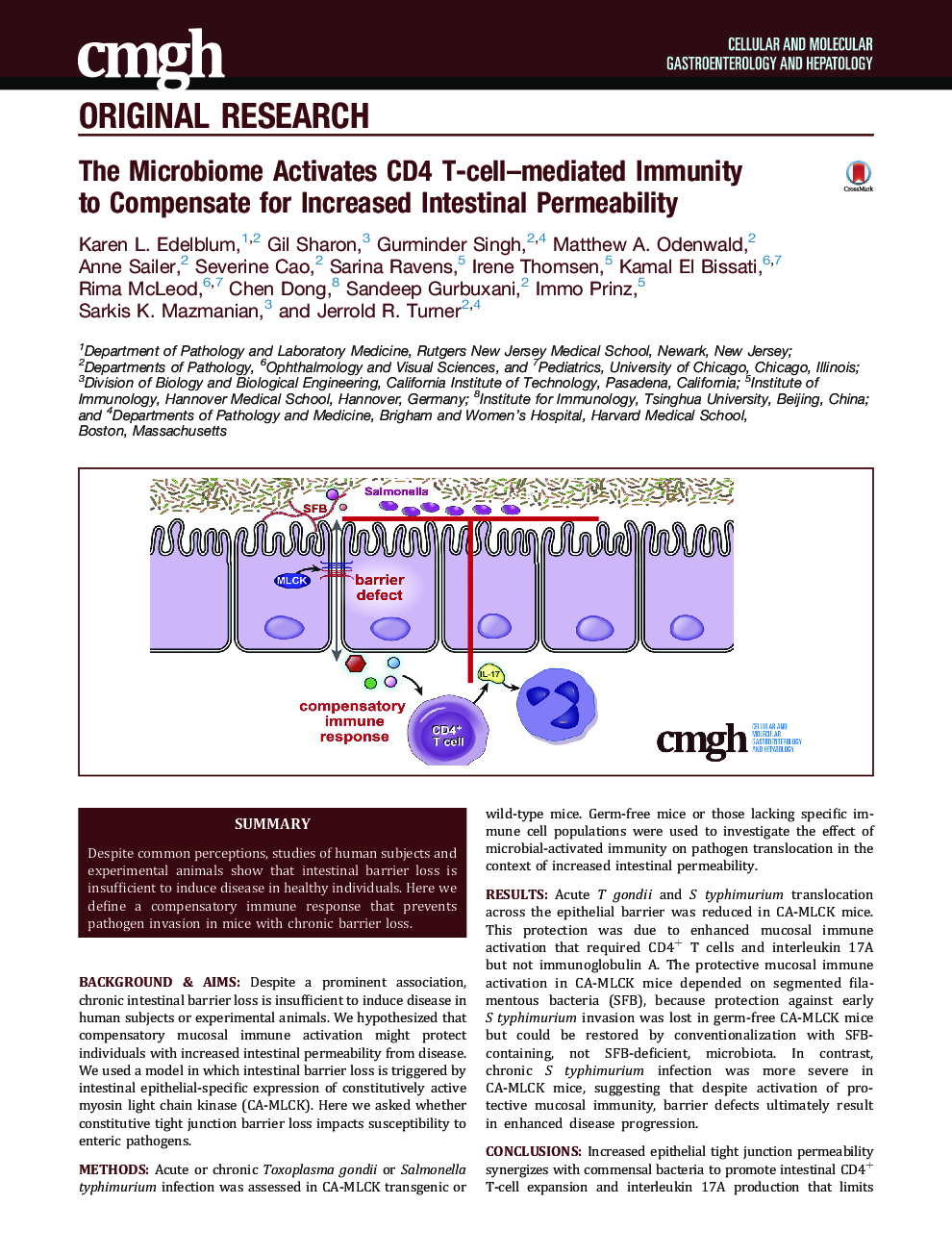| کد مقاله | کد نشریه | سال انتشار | مقاله انگلیسی | نسخه تمام متن |
|---|---|---|---|---|
| 5517204 | 1400955 | 2017 | 13 صفحه PDF | دانلود رایگان |

Background & AimsDespite a prominent association, chronic intestinal barrier loss is insufficient to induce disease in human subjects or experimental animals. We hypothesized that compensatory mucosal immune activation might protect individuals with increased intestinal permeability from disease. We used a model in which intestinal barrier loss is triggered by intestinal epithelial-specific expression of constitutively active myosin light chain kinase (CA-MLCK). Here we asked whether constitutive tight junction barrier loss impacts susceptibility to enteric pathogens.MethodsAcute or chronic Toxoplasma gondii or Salmonella typhimurium infection was assessed in CA-MLCK transgenic or wild-type mice. Germ-free mice or those lacking specific immune cell populations were used to investigate the effect of microbial-activated immunity on pathogen translocation in the context of increased intestinal permeability.ResultsAcute T gondii and S typhimurium translocation across the epithelial barrier was reduced in CA-MLCK mice. This protection was due to enhanced mucosal immune activation that required CD4+ T cells and interleukin 17A but not immunoglobulin A. The protective mucosal immune activation in CA-MLCK mice depended on segmented filamentous bacteria (SFB), because protection against early SÂ typhimurium invasion was lost in germ-free CA-MLCK mice but could be restored by conventionalization with SFB-containing, not SFB-deficient, microbiota. In contrast, chronic S typhimurium infection was more severe in CA-MLCK mice, suggesting that despite activation of protective mucosal immunity, barrier defects ultimately result in enhanced disease progression.ConclusionsIncreased epithelial tight junction permeability synergizes with commensal bacteria to promote intestinal CD4+ T-cell expansion and interleukin 17A production that limits enteric pathogen invasion.
390
Journal: Cellular and Molecular Gastroenterology and Hepatology - Volume 4, Issue 2, September 2017, Pages 285-297